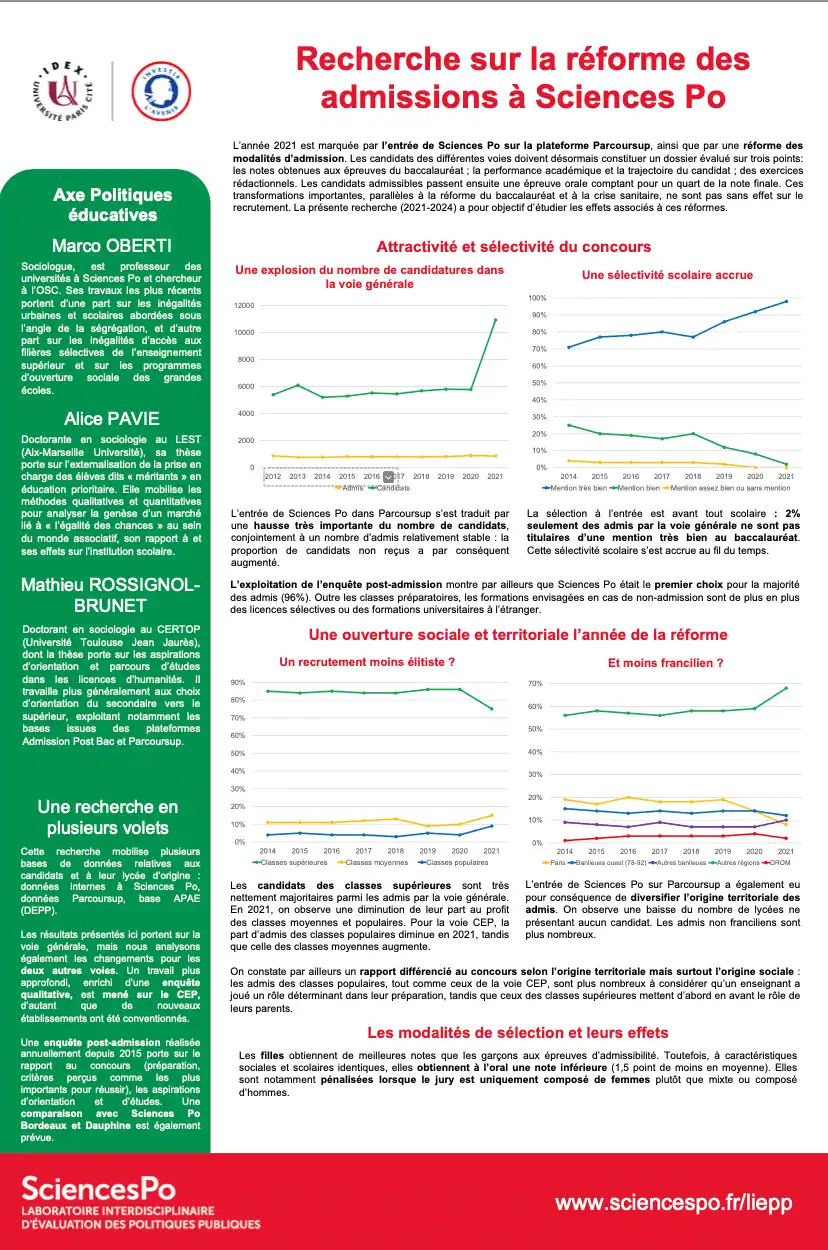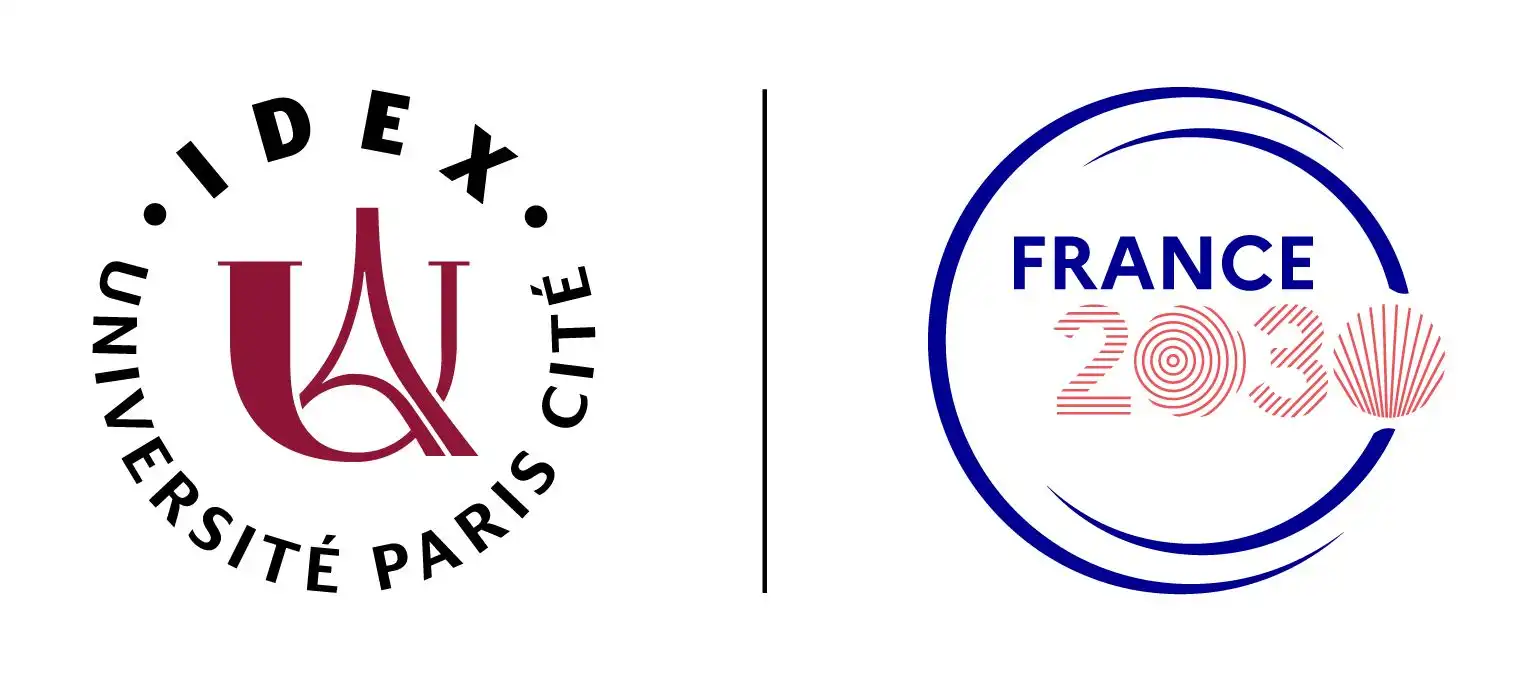
Home>Research>Project>Recherche sur la réforme des admissions à Sciences Po
Recherche sur la réforme des admissions à Sciences Po
Project holder:
- Marco OBERTI (OSC)
Research team:
- Alice PAVIE (Université Aix Marseille)
- Mathieu ROSSIGNOL-BRUNET (Université Jean-Jaurès Toulouse)
- Yannick SAVINA (OSC)
Project description:
Following on from the work we have been doing for over a decade, and given the scale of the changes brought about by the admissions reform, and in particular the integration of Sciences Po into the Parcoursup platform, the main objective of this section is to understand the impact on recruitment in terms of social and geographical origin, gender, academic profile and career at the institution.
To enable comparison with previous years, we are looking at three populations corresponding to three stages in the admissions process: applicants, 'admissible' applicants and admitted applicants. Even though the application procedure will be the same from the start of the 2021 academic year, we will attempt to group them together in such a way that comparisons can be made on the basis of previous procedures: examination procedure, CEP, international procedure.
The challenge is twofold: on the one hand, to considerably improve the nature and quality of the data collected by the Registrar's Office; and on the other, to ensure that it is consistent with other external databases. This involves a decisive step consisting of harmonising all the nomenclatures and the coding of variables. We will also be looking at the possibility of introducing new variables that would considerably enrich the analyses, such as: parents' country of birth, their level of education, income, 'first generation' (first in a sibling to access higher education), language spoken at home, etc.).
The analysis focuses not only on the pupils themselves, but also on the lycées from which they come. First-year entrants will be analysed every year.
We are also considering a comparison with the dynamics at work at Sciences Po Bordeaux, whose admissions procedures differ from those at Sciences Po Paris. The comparison with a regional IEP should enable us to better distinguish the specificity of Sciences Po Paris, among other things from the point of view of its territorial anchoring and its international coverage, but also to better understand the role of a regional capital in the training of elites.
Read the report: OBERTI, Marco, PAVIE, Alice, ROSSIGNOL-BRUNET, Mathieu, Les enjeux de la réforme des admissions à Sciences Po Paris : Mérite et inégalités en tension dans une grande école, Sciences Po LIEPP Report, December 2024.
Poster of the project - July 2024


